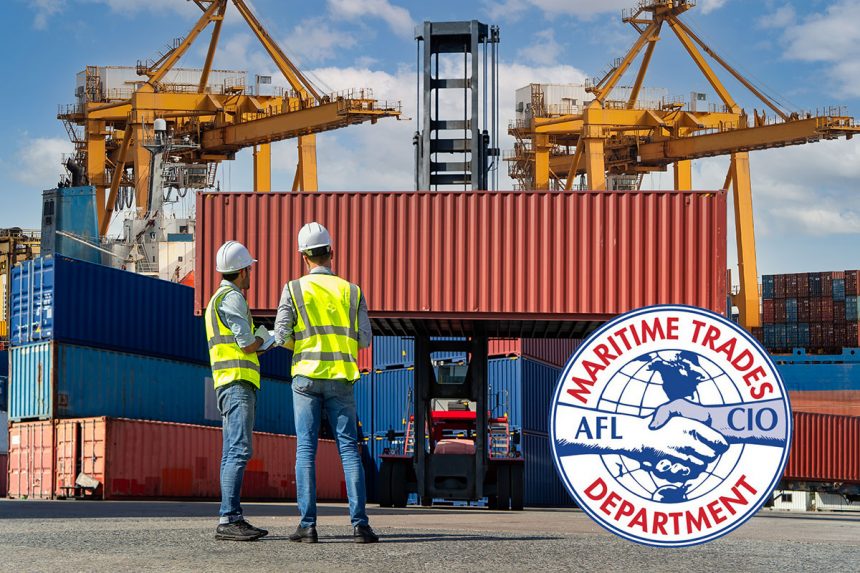The maritime industry is coming to the defense of the Jones Act as a recently released freight plan by the Michigan Department of Transportation (MDOT) takes aim at the cabotage law.
MTD President Michael Sacco, joined by SIU Vice President Lakes and Inland Waters Tom Orzechowski and Michigan Maritime Trades Port Council Secretary-Treasurer Todd Brdak, has taken a strong stance against the Michigan Freight Plan’s assertion that, “the restrictive provisions of the federal Jones Act hinder the development of short-sea shipping or other domestic services.”
The Jones Act, which stipulates that all shipping between domestic ports happen on vessels built, crewed, flagged and owned American, generates more than 500,000 jobs and results in an annual economic output of well over $100 billion nationwide. It also helps ensures the United States has a fleet of U.S.-flag ships and well-trained, dependable U.S. Merchant Mariners who can serve the country during times of war and crisis.
With such benefits, Sacco wrote in a letter to MDOT, how could Michigan ever consider the Jones Act to be “restrictive?”
“Thousands of good-paying Michigan jobs on the Lakes, on the docks, in offices and elsewhere are involved in the Jones Act trade,” he said. “Is the state of Michigan proposing to eliminate these jobs in order to give them to overseas businesses and workers?”
Aside from the jobs and economic stimulus it provides, the Jones Act also costs less than other modes of transportation. According to the Army Corps of Engineers, Great Lakes shipping saves customers $3.6 billion annually when compared to rail and truck.
In a letter of its own to MDOT, the SIU-affiliated Great Lakes Maritime Task Force (GLMTF) also came to the defense of the Jones Act, arguing the cabotage law ensures shipping is the best way to transport goods on the Great Lakes.
“There are three pillars to the Jones Act: U.S. crews, U.S. construction, and U.S. ownership. What is restrictive about that?” the GLMTF wrote in its letter. “This is domestic commerce; it should create jobs for American workers and opportunities for American companies.”
Sacco added in his letter that opening up the Great Lakes and inland waterways to foreign vessels could have safety implications as well.
“The Jones Act and its Canadian counterpart ensure vessels plying the Great Lakes and inland waterways meet American safety, construction and working standards,” Sacco wrote. “Vessels with overseas registries are under no obligation to do so.”
Referring to the huge volume of cargo moving through Michigan’s ports as evidence that there is no service shortfall, the GLMTF said it’s baffled as to how the Michigan Freight Plan could even suggest the state’s waterborne commerce was somehow deficient.
“Frankly, it’s an insult to the men and women of the U.S.-flag Great Lakes fleet who work so hard 24/7 to haul the raw materials that drive Michigan’s economy,” the GLMTF wrote.
And while he was speaking for the MTD, Sacco’s final line in his letter to MDOT essentially spoke for much of the Great Lakes Maritime community as well.
“We urge the state of Michigan to reconsider this announced position on the Jones Act,” he said.

